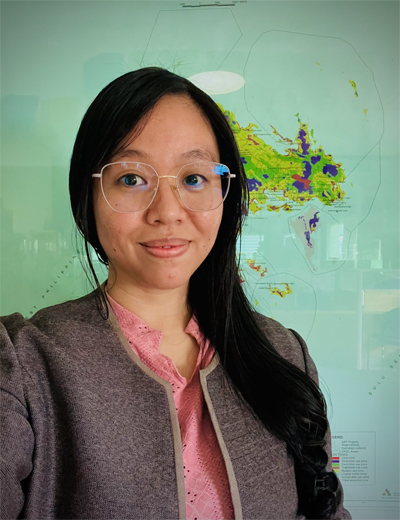Arnica De Guzman-Mortillero

Arnica is the Section Head of the Natural Capital Accounting and Sustainable Development Section of the Environmentally Critical Areas Network Monitoring and Evaluation Division of the Palawan Council for Sustainable Development. Her team leads the generation of site-specific asset and ecosystem accounts for Palawan which was initiated by World Bank’s Philippine Wealth Accounting and Valuation of Ecosystem Services (PhilWAVES) Project. Their outputs in general are continuously provided to local policy makers for planning and conservation of resources. They are also involved in the development of local carbon policy which aims to address climate change and is envisioned to guide future carbon trading in the province.
Arnica is also engaged in various activities related to the exploration of Payment for Ecosystem Services (PES) in Palawan, biodiversity credits and blue carbon initiatives. She is currently the focal point of the Seascapes and Marine Ecosystem Services Accounting/Valuation in West-offshore Palawan, Philippines (SeaWorth Project) under the Marine Resources Initiative of the Australian Department of Foreign Affairs and Trade, a project intended for ecosystem service accounting and valuation.
Arnica’s areas of interest lean towards resource economics and behavioral economics to broaden her expertise and perspectives. Alongside these, she is still continuously working on related themes around human and environment connections which includes land use and land cover change analysis, dynamics of human behavior and its connection to natural ecosystems and human health – environment nexus.
Background
Arnica started as an environmental scientist exploring socio-economic and ecological systems during her Masters and transcended to strategic planning and policy for environmental conservation for her Doctoral Degree. But due to the rising need for streamlining natural capital accounting in the government sector, her career took a new path towards exploring resource accounting and economics.

